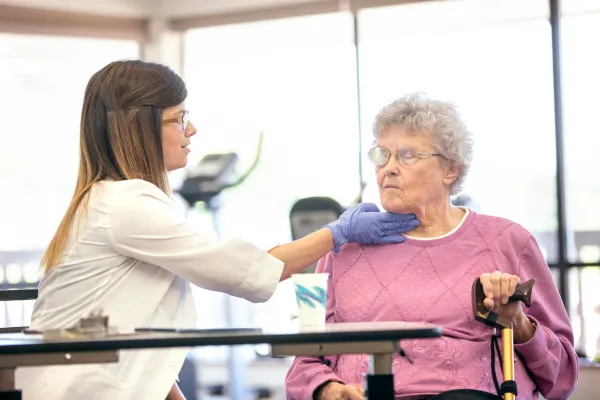
How to Support a Loved One Who Struggles to Eat and Drink
Watching someone you care about struggle with eating or drinking can be scary and upsetting.
You might feel helpless… or unsure what to do.
Maybe they cough when they drink, push food around the plate, or avoid mealtimes altogether. You want to help—but without embarrassing them or making things worse.
Here’s how to gently support a loved one with swallowing difficulties (dysphagia) and help make mealtimes feel safer and less stressful.
1. Notice the Signs Without Judgement
They might not talk about it, but you may notice:
Coughing or choking when eating or drinking
Taking much longer to finish meals
A gurgly voice after drinking
Avoiding certain foods (like rice, bread, or thin liquids)
Eating less or skipping meals entirely
Try not to dismiss it as “just getting older.” These can be signs of a treatable condition.
Gently ask:
🗨️ “I've noticed you sometimes cough when drinking—is that bothering you at all?”
2. Keep Mealtimes Calm and Unrushed
Swallowing takes concentration. If your loved one is tired, distracted, or feeling rushed, the risk of choking goes up.
Try to:
Choose a quiet space without background noise
Allow plenty of time to eat slowly
Avoid talking during chewing or swallowing
Sit upright with good posture
You could also suggest a short rest before meals if they seem tired.
3. Offer Foods That Feel Safe
Some foods and drinks can be harder to manage, like:
Thin liquids (tea, water, juice)
Crumbly textures (crackers, biscuits)
Sticky foods (peanut butter, mashed potato)
You don’t need to switch to purees right away, but softer, moist foods can help reduce anxiety. Keep portions small and let them take the lead.
Avoid pushing or insisting they “just try a bit more.” Respect their comfort level and trust their signals.
4. Don’t Make It a Battle
Your loved one might already feel embarrassed or frustrated. Try not to:
Correct or criticise how they eat
Make jokes about their swallowing
Hover anxiously or watch every bite
Instead, offer quiet encouragement. Be present. If they choke or cough, respond calmly—don’t panic, but stay alert.
If they start avoiding meals altogether, it’s time to get professional help.
5. Encourage a Speech Therapy Assessment
Many people don’t realise that speech and language therapists also treat swallowing—not just speech.
An assessment can help identify:
What’s going wrong
Which textures or postures are safest
Whether strategies or exercises could help
Therapy doesn’t mean a lifetime of thickened drinks or blended meals. It means support, strategies, and confidence.
At Speech Therapy Glasgow, Helen provides expert swallowing therapy tailored to each person’s needs, with flexible appointments and a kind, no-pressure approach.
You’re Not Alone—And Neither Are They
Caring for someone with swallowing difficulties can feel overwhelming. But small changes can make a big difference.
With the right support, your loved one can enjoy meals again—safely and with dignity.
📞 Book a free discovery call today to learn how swallowing therapy could help your family.



